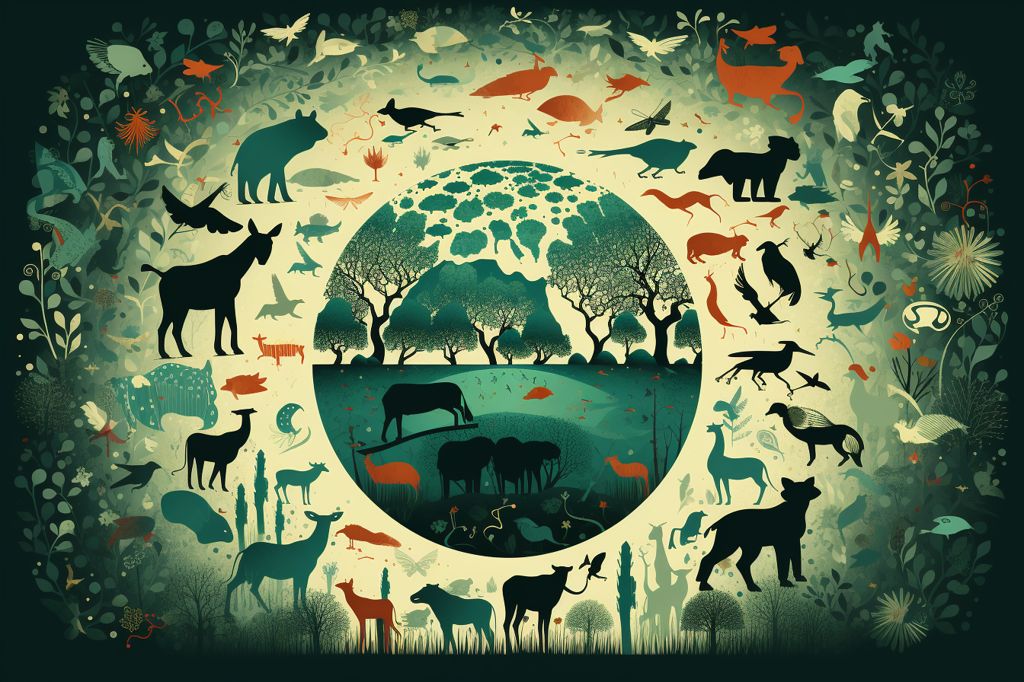World Rabies Day is a global initiative that brings people together to combat the deadliest infectious disease. This year’s theme is “Rabies: All for 1, One Health for All,” highlighting the importance of implementing One Health and building capacity through rabies control and eradication initiatives. Rabies is a deadly virus that can be transmitted through direct contact with saliva or brain/nervous system tissue from an infected animal. The focus on collaboration, inclusivity, and unity in this year’s World Rabies Day illustrates the worldwide commitment to eliminating rabies.
A Global Initiative: World Rabies Day 2023
On September 28, 2023, people around the world will come together to mark World Rabies Day, an annual event that began in 2007 with the aim of raising awareness about the fatal contagious disease and fostering international cooperation for its prevention and control. The Global Alliance for Rabies Control established this global recognition in an effort to form a united front against the disease and advocate for its eradication.
Demonstrating inclusivity and unity, the theme for this year’s World Rabies Day is “Rabies: All for 1, One Health for All.” Dr. Ilse Trautman, Deputy Director General of Agricultural Research and Regulatory Services (including Veterinary Services), explains that the theme underlines crucial developments in the rabies field and emphasizes the importance of implementing One Health – an approach that highlights the interconnectedness of human, animal, and environmental well-being.
This theme also coincides with the establishment of the Pandemic Prevention Fund by the World Bank, reflecting the urgent need to strengthen overall health systems. Dr. Trautman states that building capacity through rabies control and eradication initiatives can provide a solid foundation for further interventions and improvements in other health sectors.
Understanding Rabies and its Transmission
Rabies is a deadly virus that targets the central nervous system, comprising the brain and spinal cord, and can lead to serious brain disease and death without appropriate medical attention. Dr. Gininda Msiza, Western Cape Head of Veterinary Service, underlines the significance of preventing animal bites and seeking immediate medical assistance, as the disease is almost always fatal once symptoms appear.
The rabies virus is usually transmitted through direct contact with saliva or brain/nervous system tissue from an infected animal, often via a bite. Dr. Msiza underscores the necessity for awareness and education on rabies prevention in animals, identification of rabies symptoms, and the appropriate steps to take after a bite.
Western Cape Minister of Agriculture, Dr. Ivan Meyer, believes that events like World Rabies Day play a key part in involving communities and equipping them with the knowledge to obtain proper care and evade potential hazards. The Western Cape Department of Agriculture has made progress in this regard, vaccinating 139,383 cats and dogs during community outreach programs in the 2022/2023 fiscal year.
The Role of Companion Pets and Veterinary Week
Dr. Meyer emphasizes the importance of caring for companion animals, as they provide therapeutic and health benefits to their owners, especially those dealing with anxiety disorders, post-traumatic stress disorder, depression, phobias, and even substance use problems. Ensuring that these pets receive vaccinations is a vital way to reciprocate the support they offer.
This year’s World Rabies Day takes place during Provincial Veterinary Week, which runs from September 25 to 29. Rabies vaccination drives will be organized in various locations such as Caledon, Mitchells Plain, Swellendam, and Worcester.
The focus on collaboration, inclusivity, and unity in this year’s World Rabies Day illustrates the worldwide commitment to eliminating rabies. By joining forces, sharing knowledge, and adopting proactive measures, the goal is to create a world free from this lethal disease.
1. What is World Rabies Day?
World Rabies Day is an annual global initiative started in 2007, aimed at raising awareness about the fatal contagious disease and fostering international cooperation for its prevention and control.
2. When is World Rabies Day celebrated?
World Rabies Day is celebrated on September 28 every year.
3. What is the theme for World Rabies Day 2023?
The theme for World Rabies Day 2023 is “Rabies: All for 1, One Health for All,” highlighting the importance of implementing One Health and building capacity through rabies control and eradication initiatives.
4. What is rabies?
Rabies is a deadly virus that targets the central nervous system, comprising the brain and spinal cord, and can lead to serious brain disease and death without appropriate medical attention.
5. How is rabies transmitted?
The rabies virus is usually transmitted through direct contact with saliva or brain/nervous system tissue from an infected animal, often via a bite.
6. What is the role of companion pets in preventing rabies?
Companion pets provide therapeutic and health benefits to their owners. Ensuring that these pets receive vaccinations is a vital way to reciprocate the support they offer and prevent the spread of rabies.
7. What is Provincial Veterinary Week?
Provincial Veterinary Week is a week-long event that runs from September 25 to 29, coinciding with World Rabies Day. Rabies vaccination drives will be organized in various locations to prevent the spread of rabies.
8. Why is collaboration important in eliminating rabies?
By joining forces, sharing knowledge, and adopting proactive measures, the goal is to create a world free from this lethal disease. The focus on collaboration, inclusivity, and unity in World Rabies Day illustrates the worldwide commitment to eliminating rabies.








